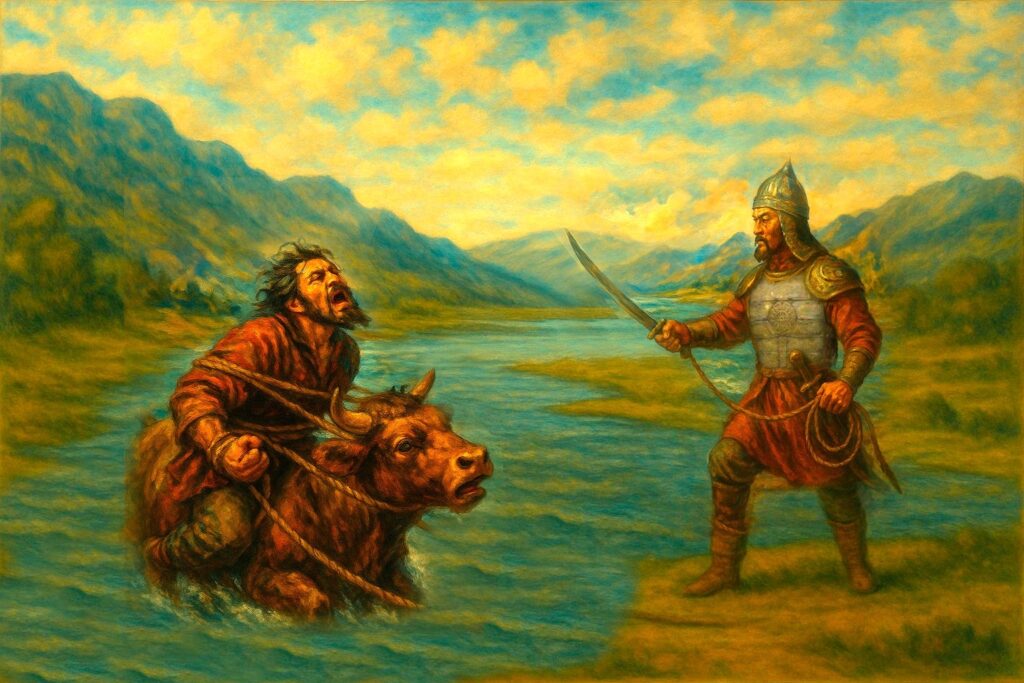© 2025. anyz.pushkinlibrary.kz All rights reserved.
Screen reader

(Source: Chistyakov Readings: Materials of the Regional Seminar. Part 1. – Ust-Kamenogorsk: KAFU Publishing House, 2010. – 210 pages.)
The meaning of the name “Kurchum,” shared by the river, the village, and the district, cannot be found in dictionaries and has no direct translation. There are several versions, based on folk legends, that attempt to explain the etymology of the word «Kurchum», but none claim to be the absolute truth. A common theme among all versions is the Dzungar invasion and the Kazakh people’s struggle for liberation.
According to local historian Shakirbanu Zhakupova, there are two main versions. The first suggests that in the upper reaches of the present-day Kurchum River, there was a settlement belonging to the warrior Kursun, after whom the river was later named. The second version states that the last battle between Kursun and the Kazakh batyr Barak took place on the river. The fierce duel between the two skilled warriors ended in the water, and Kursun was fated to perish in that fight. The river, stained with his blood, took his name. In both cases, over time, the original name transformed into its modern form Kurchum.
A slightly different interpretation is offered by Kabdolla Turarov, an elder from the district center who has long studied historical materials. According to his version, between 1723 and 1757, the struggle against the Dzungar invasion was still ongoing in the Kurchum region. One of the enemy leaders had a stronghold in the Karaozek valley, which was then covered with trees that provided shade on hot days.
During a break in their campaign, the foreign leader was captured by the Kazakh batyr Barak. Believing that the danger had passed, Barak granted the prisoner’s last request to pray in solitude. However, the captive seized the moment, leaped onto a bull, and attempted to escape. Surprisingly, even the fastest horses could not catch him, as the bull turned out to be incredibly swift (a similar legend exists in the Ulan district). The Dzungar batyr might have escaped his pursuers, but he encountered a wide and deep river that he could not cross. He was eventually caught with a horsehair lasso on the riverbank.
As he was bound, the prisoner cursed his enemies and regretted not dying in battle with a weapon in hand. The Dzungar warrior met his end there, on the banks of the Kurchum River. As life left his body, he gnashed his teeth and struggled fiercely against his restraints. In Kazakh, such anguish is described by the word «kürsinu». After this event, the river was named Kürsin, but over time, the name evolved into Kürshіm (Kurchum).
© 2025. anyz.pushkinlibrary.kz All rights reserved.
Screen reader
Write to us, we will contact you as soon as possible